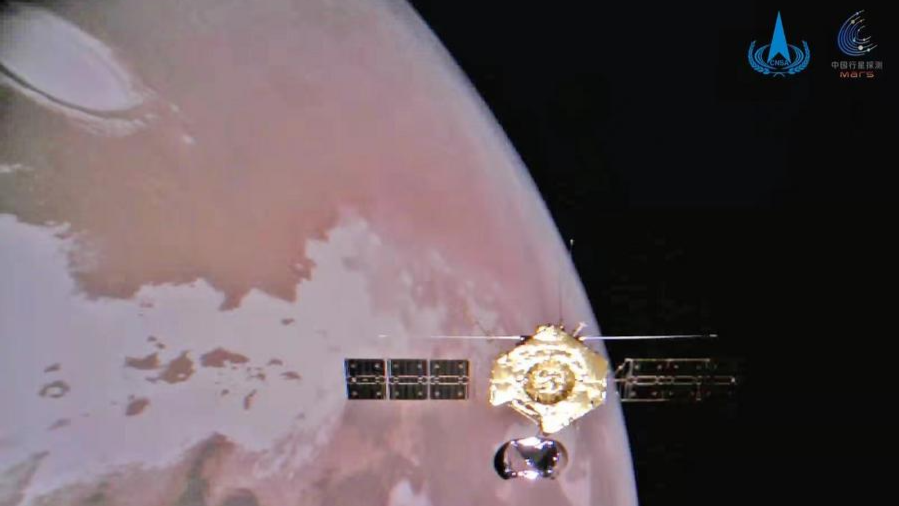
SHANGHAI - The China National Space Administration (CNSA) on Thursday announced opportunities for international cooperation on the Tianwen 3 Mars sample-return mission, inviting global partners to jointly advance Mars exploration and research, thereby expanding humanity's understanding of the red planet.
The Tianwen 3 mission, a significant part of China's planetary exploration program, is scheduled for launch around 2028, according to CNSA.
At a ceremony for Space Day of China held in Shanghai, CNSA announced that the Tianwen 3 spacecraft will allocate 20 kilograms of resources for international collaboration.
READ MORE: China aims to launch Mars sample-return mission around 2028
The Tianwen 3 spacecraft comprises a lander, an ascent vehicle, a service module, an orbiter and a return module, and it is equipped with six scientific payloads.
The orbiter will operate in a circular Martian orbit at an altitude of about 350 kilometers, and has a designed lifespan of no less than five years. The service module will operate in a highly elliptical orbit, conducting in-orbit exploration for approximately two Martian years with a designed lifespan of no less than five years.
For this mission, the CNSA is offering international cooperation payload resources including no more than 15 kilograms on the orbiter and up to 5 kilograms on the service module. Detailed technical specifications are available on the official CNSA website.
It will take two launches to carry out the Mars sample-return mission due to the limited carrying capacities of the current rockets. Two Long March-5 carrier rockets will be used for the mission, Liu Jizhong, chief designer of China's Mars sample-return mission, said in an earlier interview.
The primary scientific goal of the mission will be to search for signs of life. Other exploration subjects will include the Martian climate and its evolution, Martian geology and the planet's internal processes.
READ MORE: China releases space science development program for 2024-2050
The retrieval of samples from Mars is the most technically challenging space exploration mission since the Apollo program, and no such retrieval has ever been accomplished, Liu said.


